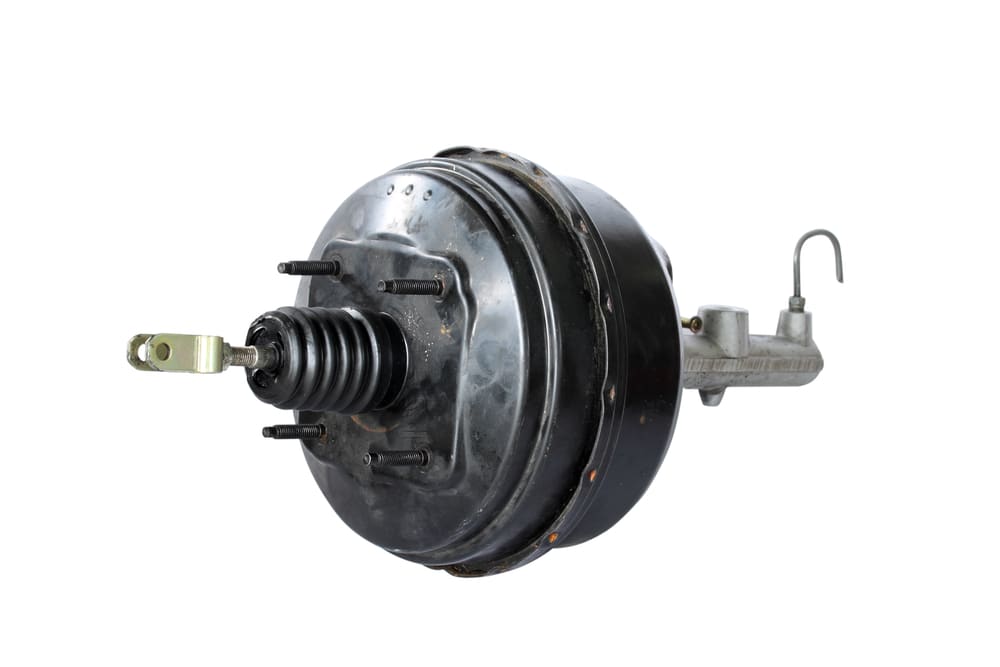

Hydraulic brake boosters are a type of brake booster found on many road going cars and trucks. Though not as common as conventional vacuum operated brake boosters, they serve the same purpose, to provide assistance to the brake system in order to reduce pedal effort and make brakes easier to operate. They differ from vacuum brake boosters, in that they operate using hydraulic pressure to assist the brakes, instead of engine vacuum. The boosters operate using hydraulic pressure generated by the vehicle’s power steering pump, or a dedicated hydraulic pump. Hydraulic brake boosters work especially well for vehicles equipped with diesel engines, where there is considerably less engine vacuum generated and therefore accessible to power accessories, in comparison to gasoline engines.
When the hydraulic brake booster fails or has an issue it can cause problems operating the vehicle’s brakes, which can become a safety concern. Usually a bad or failing hydraulic brake booster will produce a few symptoms that can alert the driver of an issue.
1. Reduced braking power
One of the first symptoms of an issue with the brake booster is reduced braking power. If there is any issue with the booster, or a compromise in the pressure of the system, the vehicle may experience reduced braking power. You may notice that the vehicle takes longer to come to a stop when the brakes are applied, and that the brakes do not respond as rapidly as they used to. Similar symptoms can also be caused by other issues with the vehicle’s brake system, so a proper diagnosis is recommended if you are unsure of the issue.
2. Brake pedal hard to press
Another common symptom of an issue with the hydraulic brake booster is a hard brake pedal. If the brake booster fails the power assistance for the brakes will be disabled and the pedal will become hard to press. A hard pedal will require significantly more effort to depress, which will result in reduced braking power and increased pedal effort.
3. Fluid leaks
Another symptom of an issue with the vehicle’s hydraulic brake booster is fluid leaks. If any of the seals or hoses that are a part of the hydraulic brake booster system wear out or rupture, they may leak fluid. Depending on the severity of the leak this may produce drips or puddles of hydraulic fluid beneath the vehicle. Any leaks present in the hydraulic brake booster system should be addressed as quickly as possible, as they will eventually compromise the operation of the system, once the fluid level drops low enough.
A properly functioning hydraulic brake booster will make it easy to operate the brakes without the need for excessive force, and can cause braking, and therefore safety issues with the vehicle when it has problems. If you suspect that your vehicle may be having an issue with the hydraulic brake booster, have the vehicle inspected by a professional technician, such as one from YourMechanic, to determine if the booster should be replaced.



